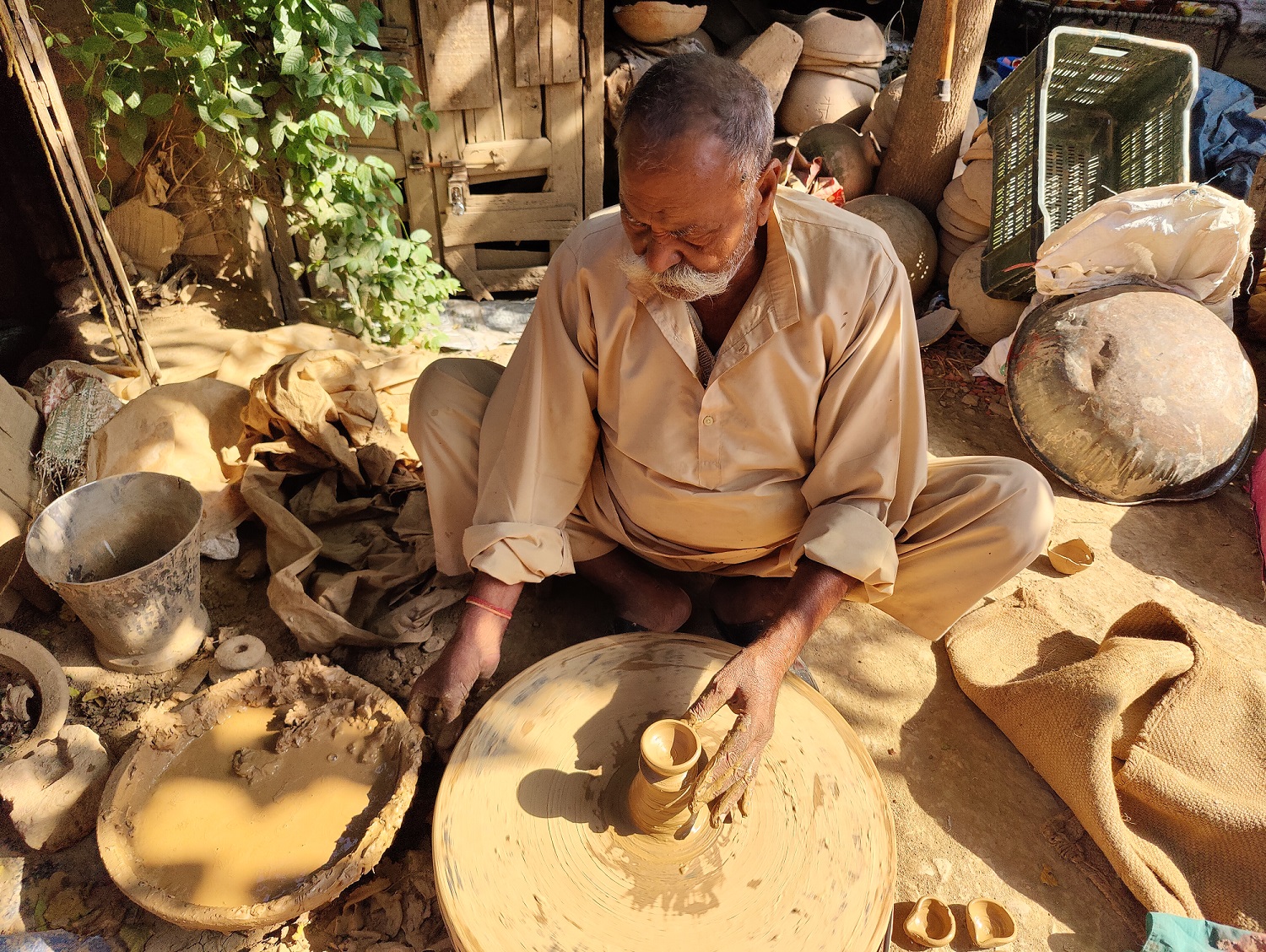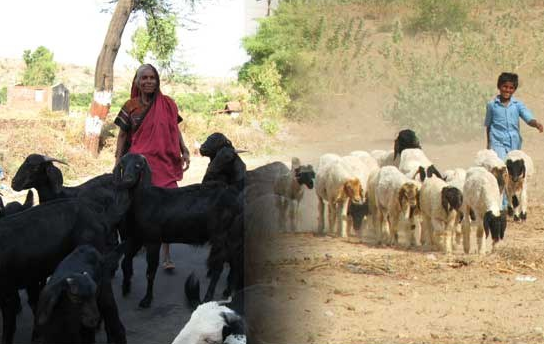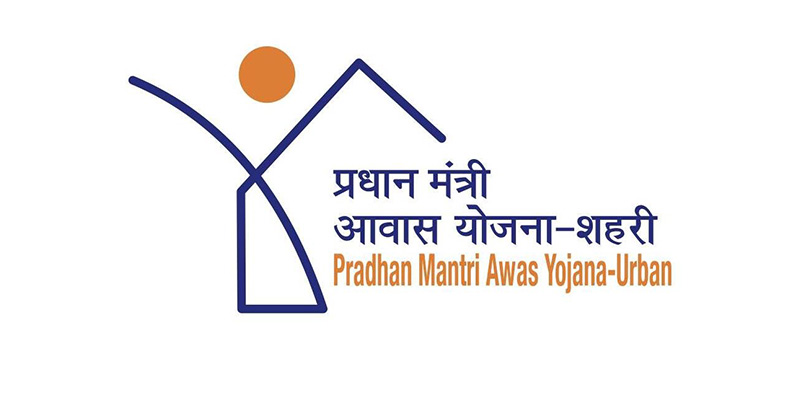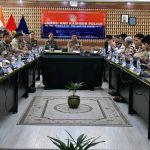Around five-to-six generations back, a group of potters—both Hindus and Muslims—moved to Jammu and Kashmir from Haryana.
While Hindus settled in Jammu plains the Muslim potters moved to Udhampur, Doda, Ramban, Kishtwar and other hilly areas of the region.
Locally called as Kumhars, these potters make earthen lamps, flowerpots, water coolers, toys, Surahis (goglets), clay plates, clay pots and what not.
Eighty-year-old Ram Krishan son of late Chajju Ram is one of the oldest potters who has been making clay items in Jammu district for the past 70 years.
“I was 10 when I learnt the art of pottery. Since then I have been making clay items,” Krishan says.
“This is our family business. Our forefathers, who migrated to Jammu during the rule of erstwhile Maharajas, started this business. Since then we have been carrying forward the legacy of our ancestors,” he further says.
“Even our grandchildren, who are now studying in Jammu schools, have learnt this art and are assisting us,” adds Krishan.
Although Ram Krishan and other potters sell their clay items round-the-year, they claim the best time of their business always remains the summer and the Diwali period.
Almost one month prior to Diwali festival, Ram Krishan and his family of almost 15 people now, buys around one truckload of a special kind of clay from Samba district’s Jakh village and starts burnishing it using the traditional techniques like cleaning and rubbing the rough clay repeatedly for several days.
Once ready, this fine clay is dried and stored in different areas and then all the family members, including the children, start making the earthen lamps and other clay articles on the potter’s wheel to meet the Diwali requirements.
The job of the women is to paint the clay items in different styles and shades.
Somvati, 55, wife of Ram Prasad of Haryana says, “For around one month ahead of Diwali, all the women members in our family engage in colouring the clay items.”
“In this period, we have to colour thousands of Diyas (earthen lamps) and other items made of clay as the demand of such items is very high in Jammu, Kathua, Samba, Srinagar, Doda, Kishtwar and other areas,” she says.
According to her, they get maximum sales from Jammu and Srinagar markets during the Hindu festival of Diwali.
“The Kashmir based traders buy earthen lamps and other items in bulk from us one single time and then sell it to army and other paramilitary forces’ families posted in the Valley,” she says.
In Jammu, Somvati says, the traders and local shopkeepers continue to buy their clay items until Diwali, when Hindus light up their houses to welcome Goddess Lakshmi into their houses.
Haryana’s potters burnish Samba’s clay to illuminate houses on Diwali in J&K

Leave a Comment
Leave a Comment









